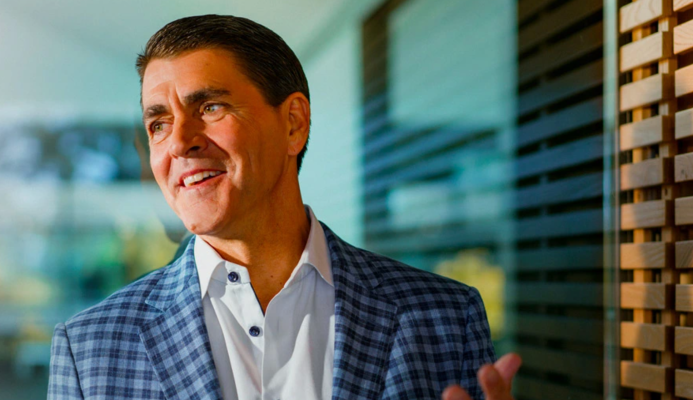Carl Eschenbach, a longtime enterprise software executive who joined Sequoia Capital in 2016 and went on to lead a number of lucrative deals for the venture firm, is going back to an operating role.
As the new co-CEO of Workday, Eschenbach will co-lead the enterprise cloud applications giant with its co-CEO, cofounder and company chair Aneel Bhusri, until 2024, at which point Eschenbach will take over as sole CEO.
Chano Fernandez, a former SAP executive who joined Workday in 2014 and has served as its co-CEO since 2020, has “stepped down” as co-CEO and relinquished his seat on the company’s board, “effective immediately,” says Workday.
Before joining Sequoia, Eschenbach spent his career with a variety of software companies. Most notably, before diving into VC, he was the president and COO of VMware, the cloud computing and virtualization technology company, where he spent more than 14 years. Before joining VMware, he served as a VP at Inktomi, a dot-com era company that was acquired in 2002 by Yahoo.
Eschenbach will remain a venture partner at Sequoia Capital, but he isn’t expected to lead new deals. While at Sequoia, he struck a number of deals that ultimately produced huge returns for the firm, including persuading Zoom founder and CEO Eric Yuan to accept $100 million in Series D funding entirely from Sequoia in 2017.
The venture firm owned 11.4% of Zoom at the time of its 2019 IPO; Zoom’s shares skyrocketed afterward as COVID-19 gained traction the following year, shutting down much of the world, which turned largely to Zoom’s video communication’s platform.
Thanks largely to Eschenbach, along with Sequoia partner Pat Grady, Sequoia also owned an 8.4% stake in Snowflake heading into its 2020 IPO (it was the biggest software IPO ever). And through Eschenbach’s efforts, Sequoia joined the Series C and later rounds of the robotic process automation company UiPath, whose board Eschenbach joined in 2018. (UiPath staged a successful public offering last year, though like many tech companies, its shares have been battered by the market downturn.)
Eschenbach also joined the board of Workday in 2018. It is not a Sequoia portfolio company, but Sequoia’s partners are often asked to take outside board seats and on rare occasions, the firm green-lights these moves. (Longtime partner Jim Goetz — who persuaded Eschenbach to join Sequoia — is on the board of Intel, as another example.)
The co-CEO role can be controversial. Oracle seemed to pull off such a pairing successfully with top executives Safra Catz and Mark Hurd, until his death last year. SAP, meanwhile, tried a co-CEO setup and abandoned it fairly quickly.
Salesforce’s experiments with co-CEOs have also not been successful. Earlier this month, almost a year to the day after becoming co-CEO of the CRM giant, Bret Taylor stepped down in a stunning announcement that appeared to come out of the blue.
Taylor wasn’t the first co-CEO of Salesforce to throw in the towel for one reason or another. In 2018, Salesforce founder Marc Benioff named Keith Block co-CEO. Block lasted in the position slightly longer than Taylor, stepping down in 2020.
Possibly, Eschenbach and Bhusri will understand one another better than most given they have similar histories. Before cofounding Workday in 2005, Bhusri was himself a venture capitalist with the firm Greylock Partners, investing on the firm’s behalf for more than 23 years.
